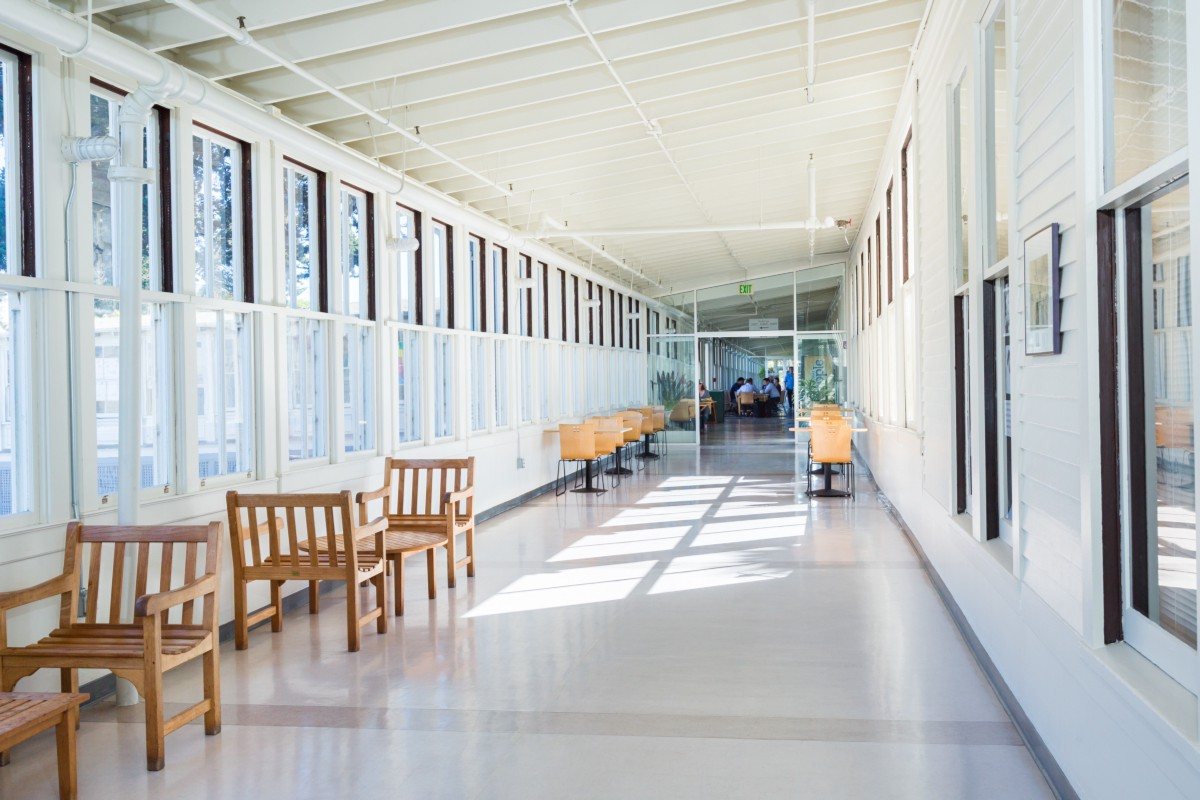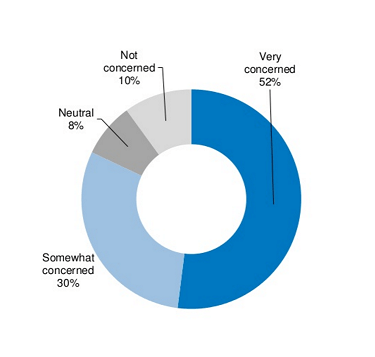
Our Community

The Tides Thoreau Center provides a light-filled space for collaboration to social ventures.
By Saul Ettlin and Kim Sarnecki
Want to join the conversation? View this article on Medium.
In a time when nonprofits in cities like San Francisco, New York, Denver and Vancouver are being pushed out because of rent increases of up to 50%, investing in social purpose real estate, in the form of shared spaces for nonprofits, needs to be bumped up the capacity-building funding food chain. This week, Northern California Grantmakers, the San Francisco Foundation and the city of San Francisco released a new research report that shines light on this issue. Over 80% of the nonprofit organizations surveyed were concerned about the negative impact of the real estate market on their long-term financial sustainability, and more than two thirds anticipated that they may have to relocate in the next five years.

How concerned nonprofit survey respondents are about the real estate market’s effect on their long-term financial sustainability. (Source: Regional Nonprofit Displacement Report from Northern California Grantmakers)
For human services organizations in particular, a social purpose real estate investment can mean the difference between a vibrant, healthy community, and a languishing one. As one survey respondent from this week’s report explains: “We serve youth from all over the city. Finding a space for them to come to where they can safely do so, from all parts of the city, is incredibly hard. Moving every year also makes it harder for youth to find us.” Although many organizations are not experiencing the financial pressure of extreme rent increases like the ones happening in San Francisco, the real estate market often doesn’t meet nonprofits needs no matter where they are located. Sharing space allows nonprofits, especially small ones (less than 40 staff members), to be more effective. According to the Nonprofit Center Network’s report, State of the Shared Space Sector, organizations with offices in one of the 393 nonprofit centers in the United State and Canada report that:
Tides has witnessed firsthand the benefits of investing in shared spaces for nonprofits. In 1995, we started the Tides Thoreau Center in San Francisco where we remodeled 12 military hospital buildings after the base in the Presidio was decommissioned. The roughly 150,000 square foot Center is now home to 75 organizations. By our estimates, tenants at Thoreau Center have saved a combined total of just over $18 million between 1996 and 2012, compared to the average rental rates for Class B properties in San Francisco. In addition to the rental savings, tenants foresee other savings and benefits. They get access to business equipment (e.g. copiers) and meeting rooms that they might otherwise have to pay for. Additionally, Thoreau Center tenants are gaining knowledge from a community of like-minded organizations. For example, we have an Executive Director who started a round table for EDs to share information, best practices, challenges and solutions. More informally, tenants have also reported that conversations that happen at the café located inside the Thoreau Center have resulted in everything from consulting recommendations to funding opportunities.
Working in a shared space can also add a lot of beauty and fun to the workday, which contributes to staff morale and retention. As one tenant told us: “I like the view . . . trees, parrots, wildlife—also, just a real nice, friendly ambiance . . . I come into work, I feel creative. I’m proud to bring people here. They can’t wait to drive over here to be with me when I have meetings—that, and the nature—it inspires me every day.” Tides is committed to creating opportunities for nonprofits to have some kind of ownership or stake in social purpose real estate that goes beyond temporary office space solutions (e.g., displacement funds). Without some kind of ownership, nonprofits will always be at the will of the ebbs and flows of the real estate market. Organizations pay a huge toll in time, money, and impact when they continually have to move their whole organization. We’re actively exploring how public/private partnerships can work together to solve this challenge. The Tides Thoreau Center in San Francisco is a hybrid model of ownership and rental. We have a 55-year land lease on our buildings. They belong to the Presidio Trust. We worked with Equity Community Builders to raise funds to renovate the buildings. ECB created a ground lease to meet the underwriting requirements of commercial lenders. They also raised more than $2.5 million in equity, utilizing the historic tax credit, $8 million in construction and permanent financing, and $3.5 million in program related investment loans from foundations. In addition to keeping community services near the people they serve, and increasing organizations’ effectiveness, investing in social purpose real estate, and shared spaces for nonprofits in particular, should be a priority because:
In a Maslow’s hierarchy of capacity building needs, office space should be the base. If organizations don’t have the space they need to perform their work, or can’t be located in the communities they serve, their impact decreases dramatically. By investing in shared spaces for nonprofits, we can literally build a solid foundation beneath the nonprofit sector. Saul Ettlin is the Collaboration + Space Manager at Tides, and Kim Sarnecki is Director of Administration & Real Estate at Tides.

Read the stories and hear the voices of social change leaders fighting for justice.